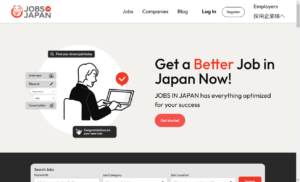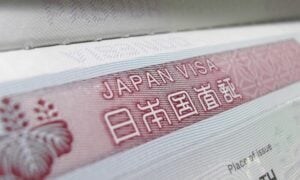
Before the current pandemic, I only did face-to-face interviews. By doing so, I had a very good feeling for who the person was. I knew what they looked like, how they would be in front of one of my students (i.e. customers), how they looked when they answered my questions – were they lying, faking, stretching for answers. The body language told me so much. Then COVID-19 came.
Like the other schools in my area, I was struggling to find enough lessons for my teachers because students (kids, adults, offsite) weren’t booking lessons. What should I do? But then something happened that I didn’t anticipate; two of my teachers left and tried to make their way back to their home country. This usually wouldn’t have been a problem but in my case, I only had three teachers. Even though the lesson volume had dropped dramatically, after three months the demand for lessons started to pick up but I didn’t have enough teachers to teach the lessons.
I have to be honest and say that I was not looking forward to engaging in a bunch of face-to-face interviews with foreign teachers in the midst of a pandemic. While most of my fellow foreigners are just as careful and taking the same precautions as everyone else in Japan, having potential job applicants travel to our school seemed like an unnecessary risk for all. While nothing to do with our curriculum or quality of instruction, the risk of a school owner catching COVID-19 would damage our reputation and trust with our students / parents. As much as I tried to put it off, I knew there was only one option – online interviews.
I eventually found the right candidate but it did take me longer than I thought and the main reason was that I did not appreciate the shift I needed to make in order to get to know someone well enough to hire them from just an online interview. So I thought I’d share with you some of the things I learned from doing online interviews that I wish I knew before I started.
Best Practices:
Create a special account or you will get spam
As job seekers can “chat” to you, you do not want to use your personal account. I do not want to be asked how things are going or be asked what the person did wrong if I rejected the person. Much like working with some recruiters, you don’t want to give them your main email account or they will never leave you alone.
Treat it like a regular interview
Oftentimes, online interviews tend to be rushed or you are using a different room for the interview. Give the job seeker the same courtesy you make for a proper interview in the right setting. Don’t be late and make it feel professional by dressing up nicely which will give a good first impression.
Check what time the job seeker logs in
I like to check when the interviewee logs in. If they log in 10 minutes before and are “Standing By”, I have a good idea that this person is organized, prepared and will be on time or early to work. If the person logs in seconds before the interview or they are running late, they may be the type of person that is not so punctual or prepared.
Harder to convey personality
Your personality comes out less when you are online and you smile less. Candidates are usually a bit more nervous interviewing online and you should definitely factor this into your decisions about them. Try extra hard to be personable and put them at ease early on in the interview with a lot of smiles and positivity so they feel free to let their personality out a bit. After all, you want them to be friendly in front of your customers don’t you?
Pay attention to how is the applicant is dressed
It’s always good to see how seriously the applicants take the interview. Just because the interview is via video where they might be used to speaking with their friends and family, does not mean they can dress informally to your interview. You would be amazed how many job seekers do not dress professionally for the interview. As far as I’m concerned, a Hawaiian shirt is never acceptable.
Be familiar with all the settings on your video platform
There is a good chance that at some stage that either yourself or an interviewee will have a problem with the technology. They may accidentally mute their mic or have issues with their webcam. These things happen and if tech savvy is not a requirement of the job, don’t hold it against them as it can happen to anyone. Have a practice video call with a colleague or friend first and fiddle around with all of the functions so that you know how they work and, most importantly, you will be able to confidently tell the interviewee how to fix whatever problem comes up. This will save so much time and stress down the road.
Practice recording yourself asking the questions
From my side, I want to maximize the time that I have in the interview. I do not want to waste any time repeating myself so I need to make sure that I speak slower and clearer than normal. If I speak too slow the applicant may think that there is something wrong with me so I recommend recording yourself asking the questions. When you are finished, play the recording back to see what it would like from the interviewee’s side. You will find that you actually speak faster than what you think you do in your head. Record again, this time more consciously speaking slowly and clearly. It doesn’t have to be perfect but practicing how you will speak on camera is one of the big things that most people feel like they don’t need to do. You do sound different and you will likely not notice your first time, so make sure you practice so you come across as personable in your video interview. Remember that the employee is also trying to figure out if they want to work for you, too.
Don’t try to power through as many questions as possible
If you have too many questions, you may want to cut some, or not enough, add some. Sometimes the questions sound good in your head but when you hear them aloud, you realize that it’s best to skip, or rephrase, that question.
When you send the interview confirmation email to applicants, make sure that you have the correct time and date. If it is a domestic interview (within Japan), make sure to add AM or PM to be clear, and if it is an international interview, you may be dealing with different time zones, so you need to be extra careful that you give the right time zone and date. Give the time and date both for Japan “9am JST (Tokyo, Osaka)” and their local time, and include a link to timeanddate.com so they can double check for themselves.
Make sure that you receive a written confirmation that the candidate will attend the interview at the proposed time. If you send the invitation and they don’t reply, they may not show up and you will waste time.
There will definitely be times when interviewees will ramble and you will need to stop them talking so you have time to ask all of your questions. It can be difficult to do this without feeling like you are coming off as rude, so have some phrases written down in front of you that you can use in this situation. My personal favourites are:
- “I understand where you are going with that, let’s move to the next question.”
- “That sounds good. In the interests of time we need to go to the next question now.”
- “Thank you for that. Now what I really need to ask you is….”
- “I’m sorry to cut you off but we don’t have a lot of time so I need to move to the next question.”
While I like to record the videos to share the better ones with team members, just the mention of the call being recorded seems to make people more rigid. It’s up to you whether you make it a requirement to record the interview or not.
If you are using JobsinJapan.com to hire, use our Video Interview system for the first round interviews.
We have a one way automated interview system where employers can, with a single click, invite applicants to answer a number of set interview questions in a relatively controlled way (same questions, same amount of time to answer, etc.). The responses are then attached to the resume for the hiring manager’s review.
It is different from the live video interviews above but I wanted to let you know about this free service which allows you to get a feel for the candidate before actually doing one in person. https://jobsinjapan.com/employers/
Last word
Online interviewing can be intimidating at first but with the proper preparation it will save you a lot of time. You will grow in confidence with each interview you do and get better at doing it, and more importantly, you will have the option of conducting either face-to-face and online interviewing, which will give you the tools to interview anyone at any time.
I hope this article helped you. You can save a lot of time in your online interviews by having an On Demand Interview to answer some of the most common questions and screen for people you don’t want to interview. If you have any questions, please let me know using the comment box or email me at [email protected]















